David Gilmour - The Luck And Strange Concert 2025
Исполнитель: David Gilmour Альбом: The Luck And Strange Concert Жанр: Progressive Rock, Psychedelic Rock Год: 2025 Страна: UK (Cambridge) Лейбл: Legacy Recordings Формат: FLAC (tracks) Official DR value: DR8 Разрядность: 24bit / 96kHz Stereo Размер: 2,6 GB Инфо: wiki Залито на: XFile (tracks) «Exclusive for Lossless-Galaxy»
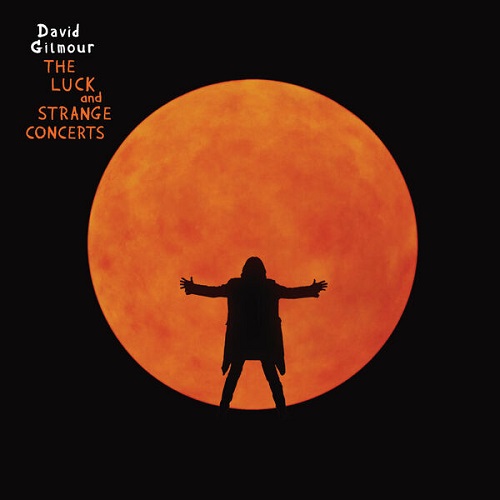
David Gilmour - The Luck And Strange Concert 2025
Исполнитель: David Gilmour Альбом: The Luck And Strange Concert Жанр: Progressive Rock, Psychedelic Rock Год: 2025 Страна: UK (Cambridge) Лейбл: Legacy Recordings Формат: FLAC (tracks) Official DR value: DR8 Разрядность: 24bit / 96kHz Stereo Размер: 2,6 GB Инфо: wiki Залито на: XFile (tracks) «Exclusive for Lossless-Galaxy»
16 10, 2025
Genesis - A Trick Of The Tail (2025) 1976
Исполнитель: Genesis Альбом: A Trick Of The Tail Жанр: Progressive Rock, Art Rock Год: (2025) 1976 Страна: UK (Godalming, Surrey) Лейбл: Analogue Productions (CAPA 073 SA) Формат: [SACD-R][OF] Контейнер: ISO (*.iso) Тип рипа: image Разрядность: 64 (2,8 MHz/1 Bit) Аудиокодек: DSD64 (2.0) Количество каналов: 2.0 Размер: 2,1 GB Инфо: wiki Залито на: XFile (.iso)
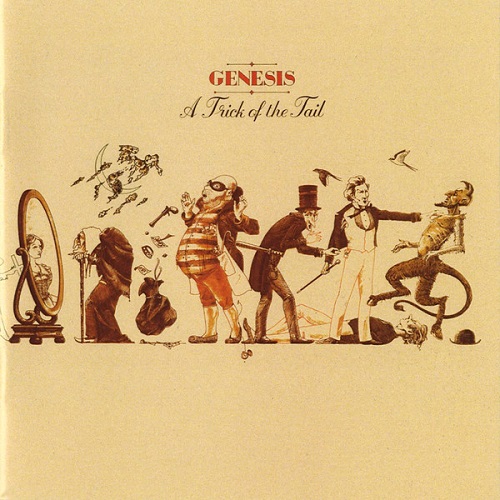
Genesis - A Trick Of The Tail (2025) 1976
Исполнитель: Genesis Альбом: A Trick Of The Tail Жанр: Progressive Rock, Art Rock Год: (2025) 1976 Страна: UK (Godalming, Surrey) Лейбл: Analogue Productions (CAPA 073 SA) Формат: [SACD-R][OF] Контейнер: ISO (*.iso) Тип рипа: image Разрядность: 64 (2,8 MHz/1 Bit) Аудиокодек: DSD64 (2.0) Количество каналов: 2.0 Размер: 2,1 GB Инфо: wiki Залито на: XFile (.iso)
16 10, 2025
Genesis - Abacab (2025) 1981
Исполнитель: Genesis Альбом: Abacab Жанр: Progressive Rock, Art Rock Год: (2025) 1981 Страна: UK (Godalming, Surrey) Лейбл: Analogue Productions (CAPA 042 SA) Формат: [SACD-R][OF] Контейнер: ISO (*.iso) Тип рипа: image Разрядность: 64 (2,8 MHz/1 Bit) Аудиокодек: DSD64 (2.0) Количество каналов: 2.0 Размер: 1,9 GB Инфо: wiki Залито на: XFile (.iso)
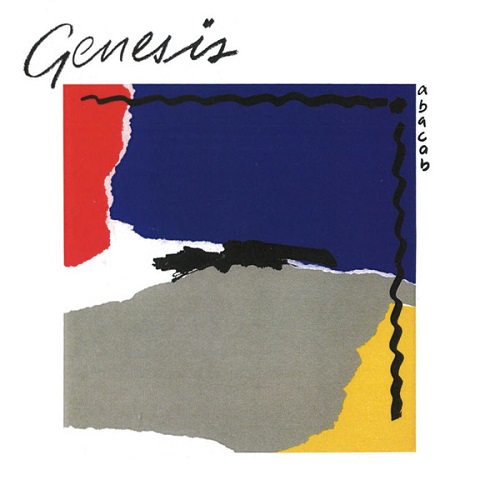
Genesis - Abacab (2025) 1981
Исполнитель: Genesis Альбом: Abacab Жанр: Progressive Rock, Art Rock Год: (2025) 1981 Страна: UK (Godalming, Surrey) Лейбл: Analogue Productions (CAPA 042 SA) Формат: [SACD-R][OF] Контейнер: ISO (*.iso) Тип рипа: image Разрядность: 64 (2,8 MHz/1 Bit) Аудиокодек: DSD64 (2.0) Количество каналов: 2.0 Размер: 1,9 GB Инфо: wiki Залито на: XFile (.iso)
16 10, 2025
Жанры
Lossless Galaxy Release
Русская музыка
--Поп
--Рок
--Панк
--Альтернатива
--Металл
--Рэп, Хип-Хоп, R'n'B
--Джаз и Блюз
--Фолк
--Шансон, Авторская песня
--СССР
Зарубежная музыка
--Pop
--Rock
--Hard Rock
--Progressive & Art-Rock
--Pop-Rock & Soft Rock
--Instrumental Rock
--Heavy, Traditional, Industrial Metal
--Power, Gothic, Sympho Metal
--Thrash, Speed, Groove, Modern Metal
--Death, Melodic Death, Doom, Dark Metal
--Black, Pagan, Folk, Viking Metal
--Alternative
--Punk
--Disco, Eurodance
--Rap, Hip Hop, R'n'B
--Reggae, Ska, Dub
--Jazz, Blues, Soul
--Folk, Country, Ethnic
--Electronic, Ambient, New Wave
--House, Techno, Trance
Другие жанры
--New Age, Relax, Meditative & Flamenco
--Chillout, Lounge, Downtempo, Trip-Hop
--Drum & Bass, Jungle, Breakbeat, IDM
--Classical / Классическая музыка
--Soundtrack
--Музыкальные сказки
Vinyl Rip
HI-Res / DVD-Audio / DTS
--SACD
--DSD
--DVD-Audio
Сборники Lossless-Galaxy
Альбомы 2022
Альбомы 2023
Альбомы 2024
Теги
1st Press 2022 2023 2024 2025 70... AOR Black Metal Blues Blues Rock Bootleg Series Classic Rock Death Metal Discography Exclusive for Lossless-Galaxy Folk Rock Fusion Hard Rock Heavy Metal Hi-Res Japanese Edition Jazz Jazz Rock lossless Melodic Death Metal Melodic Rock Modern Electric Blues Pop Pop Rock Power Metal Prog Rock Progressive Metal Progressive Rock Psych Rock Psychedelic Rock Rock SACD Symphonic Metal Thrash Metal Дискографии от KoGGaN
Архивы
Опрос
В каком формате хотели бы видеть релизы на сайте ?
 Автор: sirk, 4 марта 2024, Комментариев: 0, Просмотров: 795
Автор: sirk, 4 марта 2024, Комментариев: 0, Просмотров: 795V.A. - Blow Your Cool 20 Prog/Psych Assaults (1969-74)[2007]
Artist: V.A.
Title Of Album: Blow Your Cool 20 Prog/Psych Assaults
Year Of Release:1969-74[2007]
Label (Catalog#) :Psychic Circle[PCCD-7014]
Country:: UK
Genre: Psychedelia, Prog-Rock
Quality: FLAC (*image + .cue,scans)
Bitrate: Lossless
Time: 01:08:06
Full Size: 436MB
Title Of Album: Blow Your Cool 20 Prog/Psych Assaults
Year Of Release:1969-74[2007]
Label (Catalog#) :Psychic Circle[PCCD-7014]
Country:: UK
Genre: Psychedelia, Prog-Rock
Quality: FLAC (*image + .cue,scans)
Bitrate: Lossless
Time: 01:08:06
Full Size: 436MB
Tracks:
-------
01. To Live - Paradise Hammer - 3:38
02. Turn Me Loose - Freeman - 2:42
03. Major Barmy From The Army - Primitive Man - 2:30
04. I'm Gonna Be A Rich Man - Foundations - 3:54
05. Much Too Much - Dream Police - 2:58
06. Drifter - Tritons - 3:42
07. Sleeping In The Kitchen - Mogul Thrash - 2:48
08. Can't Stop Now - Ferris Wheel - 3:35
09. Blow Your Cool - Triangle - 3:10
10. She's A Bad, Bad Woman - Zior - 3:43
11. Devil's On The Loose - Rattles - 2:53
12. Freedom - Freedom - 5:12
13. Sly Willy - Bluebeard - 3:27
14. If You Ever Get To Heaven - Ryder - 3:10
15. Love Me - Variations - 2:38
16. You Are All Princes - Egg - 3:46
17. Mrs. Davis - Jess And James - 4:39
18. I Believe In You (Fire In My Body) - Bedlam - 3:53
19. What'ya Gonna Do - Swegas - 2:51
20. The Scene - Cosmic Dealer - 2:47
-------
01. To Live - Paradise Hammer - 3:38
02. Turn Me Loose - Freeman - 2:42
03. Major Barmy From The Army - Primitive Man - 2:30
04. I'm Gonna Be A Rich Man - Foundations - 3:54
05. Much Too Much - Dream Police - 2:58
06. Drifter - Tritons - 3:42
07. Sleeping In The Kitchen - Mogul Thrash - 2:48
08. Can't Stop Now - Ferris Wheel - 3:35
09. Blow Your Cool - Triangle - 3:10
10. She's A Bad, Bad Woman - Zior - 3:43
11. Devil's On The Loose - Rattles - 2:53
12. Freedom - Freedom - 5:12
13. Sly Willy - Bluebeard - 3:27
14. If You Ever Get To Heaven - Ryder - 3:10
15. Love Me - Variations - 2:38
16. You Are All Princes - Egg - 3:46
17. Mrs. Davis - Jess And James - 4:39
18. I Believe In You (Fire In My Body) - Bedlam - 3:53
19. What'ya Gonna Do - Swegas - 2:51
20. The Scene - Cosmic Dealer - 2:47
Внимание! У Вас нет прав для просмотра скрытого текста.
Изменил: sirk по причине: RE-UP
Похожие новости:
Комментарии отсутствуют
Добавить комментарий!
Информация
Посетители, находящиеся в группе Гости, не могут оставлять комментарии к данной публикации.
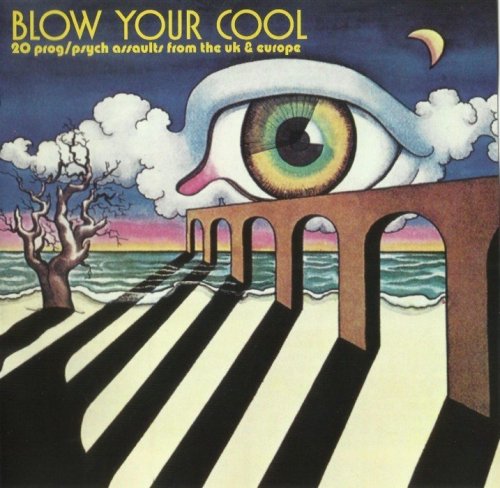


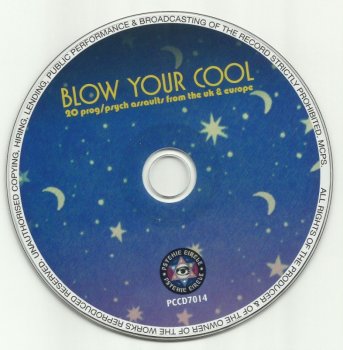

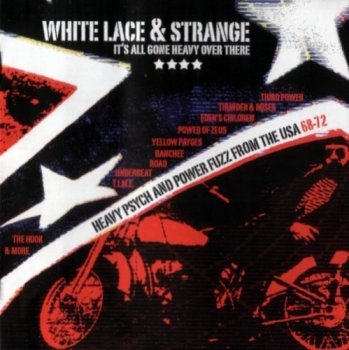
![V.A - With the Sun in My Eyes: 20 Psychedelic Spins From The UK and Europe [1966-72] (2007)](/uploads/posts/2019-04/thumbs/1555662849_49.jpg)
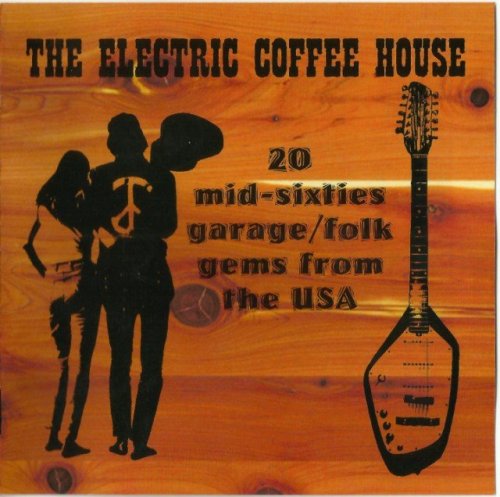
![The Pretty Things - The Electric Banana Sessions (1967-1969) [Remastered, 2011]](/uploads/posts/2019-12/thumbs/1577704627_1524383647_cover-.jpg)